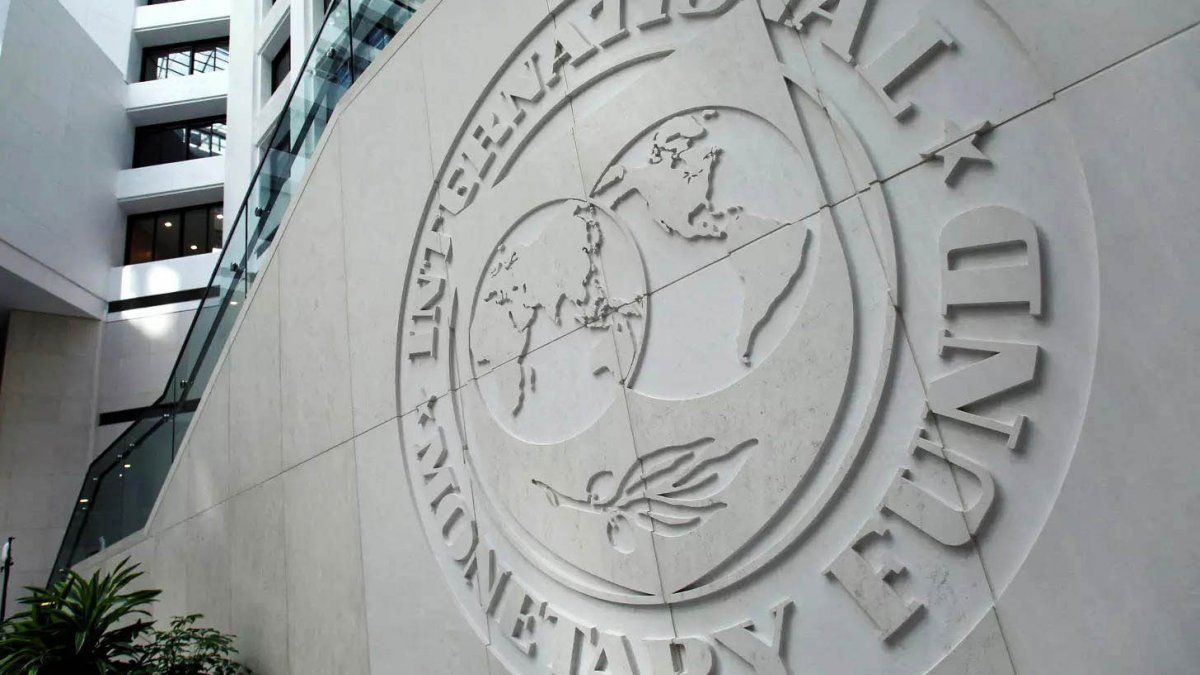“Given the very delicate social situation, together with the already very high poverty rates in Argentina, it will be important to ensure additional social assistance and preserve the real value of pensions” he claimed Julie Kozackspokesperson for the International Monetary Fund (IMF) at a press conference held this Thursday in Washington.
The IMF representative highlighted the organization’s concern about the social situation by pointing out that “sustained efforts are also needed to support vulnerable segments of the population and, as I already said, it is very important for us that, according to the program, the burden of adjustment does not fall on working families and the most vulnerable segments of the population ”.
In line with what has already been stated by the highest authorities of the Fund, Kozack maintained that “an ambitious stabilization plan is being implemented to correct serious political deviations in the last quarters of 2023 and get the program back on track”.
He remembered that“The plan focuses on establishing a strong fiscal anchor along with policies to lastingly reduce inflation, rebuild reserves and address distortions as well as long-standing impediments to growth”.
In this sense, he assured that “good progress is being made, but, of course, “The path to stabilization will be challenging and that requires strong policy implementation and agile policymaking.”
At this point he again stated that “Efforts to support the most vulnerable segments of the population are a fundamental pillar of the program and it is important that the burden of adjustment does not fall disproportionately on poor and working families.”
For the IMF this means addressing the challenges of inflation and high poverty.“Strong fiscal consolidation, the elimination of monetary financing along with improvements in monetary and exchange rate policy frameworks are expected generate a process of gradual disinflation and we are already seeing that this works. We are seeing some results in this area with inflation starting to decline and why reducing inflation is so important when it comes to protecting the most vulnerable because “We all know that inflation is a tax on the poor,” Kozack stated..
New agreement with Argentina
Asked about the possibility of formulating a new agreement between the Fund and Argentina, she stated that “Our focus remains on supporting policies aimed at restoring macroeconomic stability in Argentina as well as protecting the most vulnerable”. He pointed out that it is “premature” discuss the exact modality of the program and in this sense he made reference to a message from the Minister of Economy, Luis Caputofrom last week.
She was also questioned about the task being carried out by the Independent Evaluation Office (IEO) of the organization regarding the exceptional loan that the administration of Mauricio Macri in 2018. In this regard, he clarified that the current IEO work program includes the evaluation of past exceptional access programs and said that the 2018 Argentine program “It is one of those programs, but it is not the only one.” which will be examined as part of this review.”
The latest statements by the main leaders of the IMF praised the policies implemented by the Argentine government.
Last Thursday, February 22, the president Javier Milei received a visit from the number two of the IMF, Gita Gopinath, an opportunity in which he advanced the possibility of reaching a new agreement with the international organization. “They are very committed to our case and are willing to accompany us. We have one program, but we can move on to another“declared the president.
For now, the current agreement with the organization contemplates a realignment of ongoing policies for the coming months. The latest technical report establishes as a structural reference point that By the end of April “the “refinement of the monetary policy framework, to ensure that it is well anchored… and consistent with price stability.”
It should be taken into account that the Fund considers that the interest rate should be positive to encourage savings in pesos, as well as the need to maintain a balanced exchange rate. Minister Caputo’s first steps consisted of setting a strongly negative rate (to liquidate monetary liabilities). Likewise, after a 120% devaluation in December, he established a 2% monthly adjustment system that made the official exchange rate less competitive due to the sharp increase in inflation in recent months.
The head of the Treasury Palace met with the head of the IMF, Kristalina Georgieva, on February 28 last within the framework of the preparatory meetings for the G20 Summit in Brazil. On that occasion, the Managing Director once again praised the Argentine government by highlighting “The sustained efforts of the authorities to restore stability”.
“Excellent meeting with the Argentine minister Luis Caputo”Georgieva wrote on the social network x. In her message, the head of the IMF celebrated “the sustained efforts of the authorities to restore stability, support the most vulnerable and generate support for reforms.”
The meeting between Caputo and Georgieva took place less than a week before Deputy Director Gopinath’s visit to Buenos Aires. After the almost two-hour meeting that she had with the president, the number two of the organization endorsed the adjustment promoted by the Executive Branch and maintained that “The initial measures are beginning to bear fruit, although the road ahead remains difficult”.
Through a press release, the Fund detailed Gopinath’s statements at the end of his visit to Buenos Aires, which he described as “excellent.” He said that he was able to learn about the difficulties faced by the Argentine people and He asked that “the burden of adjustment not fall disproportionately on working families.”
“Work pragmatically to get social and political support It is also essential to guarantee the durability and effectiveness of the reforms,” said Gopinath. And he added: “I recognized the important efforts made to restore macroeconomic stability through the establishment of a solid fiscal anchor.”
IMF estimates predict recession and a sharp rise in prices for the Argentine economy. This year, “inflation will accelerate in the short term as relative price imbalances and other price controls are unwound, although disinflation is expected to begin shortly afterbased on the application of restrictive policies,” the agency evaluates. It estimates a average inflation of 230% and 150% at the end of the yearand a fall in the economy of 2.8%, although a recovery of 5% is expected in 2025 according to the latest revision of its World Economic Outlook report.
Source: Ambito




